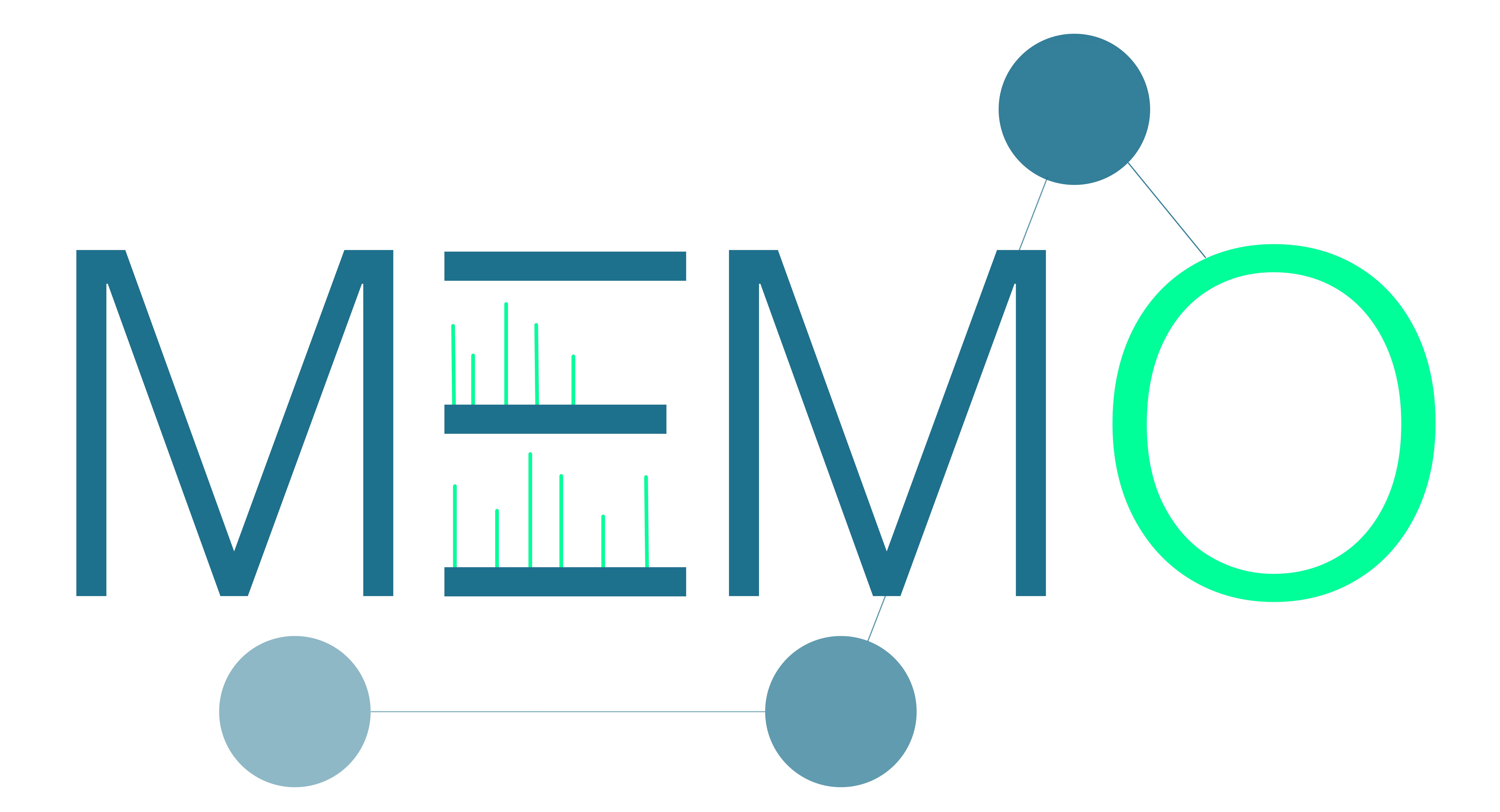
This website gathers interactive visualizations of the plots presented in MEMO article’s figures.
MEMO analysis is made available to the community through a python package. For any suggestion/remark/bug, you can raise an issue on the package github page here.
Interactive plots
Evaluation dataset: Q-Exactive RT vs Q-Exactive RT-shift
Classical feature-table (Bray-Curtis), MEMO, Qemistree and CSCS comparison using PCoA visualization on the Qemistree Evaluation Dataset.
Comparative PCoA with samples colored according to their:
- Content
- LC experiment
- Proportion of Fecal-1
- Proportion of Fecal-2
- Proportion of Tomato
- Proportion of Plasma
Evaluation dataset: Q-Exactive vs Q-ToF
Co-analysis of the same samples as above, analyzed with the same LC-method on 2 different Mass Spectrometers (MS).
PCoA (PC1 vs PC2 and PC2 vs PC3) with samples colored according to their:
Plant Extracts Dataset (n=1600 plant extracts)
Comparison of 3 different visualization (PCoA, UMAP and TMAP) performed on 3 different matrices:
- the feature-table (Bray-Curtis)
- MEMO from aligned samples matrix
- and MEMO from unaligned samples matrix on the plant extract dataset, consisting of 1600 plant extracts-
PCoA
Comparative PCoA with samples colored according to their:
UMAP
Comparative UMAP with samples colored according to their:
TMAP
Comparative TMAP with samples colored according to their:
Plant Extract Dataset and three Waltheria indica (Malvaceae) samples (n=1603 plant extracts)
UMAP and TMAP visulalization of MEMO from unaligned samples matrix of the Plant extract dataset after addition of 3 Waltheria indica samples: 2 extracts of aerial parts and roots analyzed with same method as the plant extract dataset, and 1 extract of aerial parts analyzed with a different LC-method and Orbitrap (Plus vs Q-Exactive).
Credits
Plots were generated using Plotly (Plotly Technologies Inc. Collaborative data science. Montréal, QC, 2015)